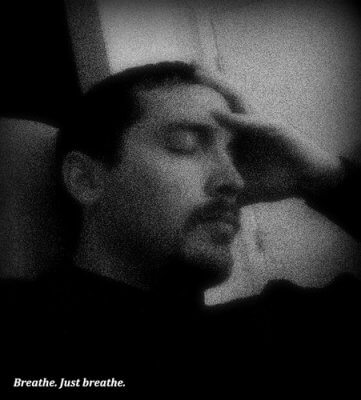Borderline Personality Disorder Treatment – What Sorts of Therapy Work?

By: thierry ehrmann
by Andrea M. Darcy
If you are suffering from borderline personality disorder, you are highly emotionally sensitive. This means you have intense and unstable relationships.
And herein lies the problem – therapy is at heart a relationship between you and your therapist.
If you are borderline, your ways of relating will affect the ways you interact with a therapist.
Some forms of psychotherapy might make you feel worse over better if they leave you feeling too vulnerable, or if the process leads to cycles of idealising your therapist then feeling letdown.
This is why, if you suspect you have borderline personality disorder, it’s highly suggested you try one of the therapies either created just for BPD, or that is evidenced-based to help.
Sticking to these forms of psychotherapy also means the therapist you see will be trained to understand you and to work in ways that help over upset you.
[For professional support from a qualified therapist, you can visit our sister site harleytherapy.com to book counselling easily and quickly, worldwide.]
What therapies help borderline personality disorder?
The therapies that help you if you have BPD are as follows:
- schema therapy
- dialectical behaviour therapy
- cognitive analytical therapy (CAT)
- mentalisation based therapy
- CBT therapy.
So how do I know what therapy is for me?
When reading about the following therapies recommended for borderline personality disorder, the following questions are helpful to ask:
- Do I want a long term or short-term therapy?
- Do I want to discuss my past, or focus on my present and future?
- What sort of relationship do I want with my therapist?
- Do I want something structured or open-ended?
- Am I happy to do some group therapy, or do I only want to work one-on-one with a therapist?
Long term borderline personality disorder treatment
Now let’s look at how therapies that help with BPD work.
Schema Therapy
Schema therapy was designed specifically for people who have personality disorders.
It helps you recognise the patterns you are trapped in that keep you behaving in certain ways, and also gives you an opportunity to try fully trusting someone.
At the heart of schema therapy is the idea that we all live out certain themes in life, called ‘schemas‘. These are patterns of behaviour we choose when we are children, and then repeat throughout our lives. For example, the ‘abandonment schema’ means you believe whoever gets close to you will eventually leave you, and that you must overreact or sabotage each relationship to protect yourself.
Schema therapy is unique in that it offers something called ‘limited reparenting’. Your therapist ‘stands in’ as the reliable parent you didn’t have. They commit to being there for you no matter what you do, say, or think, just like a good parent would.
- focus is on noticing and changing unhelpful patterns
- involves ‘reparenting’ where therapist stands in for parent you didn’t had
- does look to past for root of issues
- individual sessions only
- long-term therapy.
Dialectical behaviour therapy
Dialectical behaviour therapy (DBT) was actually created for borderline personality disorder (its creator has since admitted to having the condition herself).
Its goal is to help you find balance and acceptance in your life, and to help you create a life that you actually like being in.
It does this by focussing on four areas. These are regulating your emotions (how to change what you feel), mindfulness (accepting the present moment), distress tolerance (how to navigate emotional upset), and interpersonal effectiveness (how to relate your needs and boundaries without upsetting both yourself and others).
A highly structured therapy, DBT therapy involves homework. This might include trying out your new skills and reporting how it went. In its original form it involves both group therapy and one-to-one work.
- highly structured and involves homework
- focussed on present day issues and behaviours
- often a group therapy with extra support between sessions
- can be done one-on-one
- long-term.
Mentalisation based therapy (MBT)
Mentalisation based therapy comes from the psychodynamic school of thought, and is again a therapy specifically designed for those with borderline personality disorder.

By: bp6316
“Mentalising” is the art of understanding how other people think and feel, and it’s a skill you can learn.
So mentalisation based therapy is all about helping you understanding the difference between the assumptions you make about others and the way others really are. You learn to understand people (and yourself) better.
The belief here is that the main issue for those with BPD is that they lack a natural tendency to understand the ways other people actually think and feel.
You might think you understand people perfectly, better than anyone, but you are not seeing them as they are. The world in your head is actually different than the world others are inhabiting. And you also don’t see yourself as others see you. This can obviously lead to a lot of confusion for you, and can mean you overreact and have problematic relationships.
You can get MBT on the NHS if you are diagnosed as borderline and they feel it might help you. You might start out with sessions in a group. Although MBT is used as a short-term therapy in some cases, when it comes to BPD it tends to be at least 18-24 months.
- all about learning to understand others
- present-focussed
- sessions are more open-ended over structured
- often done as a group therapy
- longer term therapy.
Short-term borderline personality disorder treatment
Cognitive analytical therapy
Cognitive analytical therapy (CAT) combines elements of both cognitive therapy and psychoanalysis, and is recognised by the National Institute for Health and Care Excellence (NICE) as a possible BPD treatment.
The focus of CAT therapy is, like schema therapy, on patterns. But CAT focuses exclusively on patterns of relating. What are your responses to other people, and how are they affecting your life?
Again like schema therapy, there is a focus on a strong relationship between you and your therapist. This relationship itself is seen as a tool of change, where you can see your problems with relating and then try new ways of communicating.
- all about how you relate to others
- does look to your past to see how your problems started
- strong focus on your relationship with your therapist
- time-limited, often 16-24 sessions.
Cognitive behavioural therapy (CBT)
Cognitive behavioural therapy is currently the most popular form of therapy in the UK, often recommended by the NHS. And it has some evidence base for helping with BPD.
CBT focuses on the link between your thoughts, feelings, and actions. How do they ways you are thinking lead to the behaviours that cause you problems, and what can you do to troubleshoot that cycle?
It’s a very structured therapy focussing on your present issues. It does involve homework, such as doing ‘thought charts’, where you learn to recognise and challenge your negative thinking.
Cognitive behavioural therapy can help you with borderline personality disorder because it trains you to automatically question if your thoughts are true or assumptions, slowing down your reaction time and helping you feel more balanced.
- looks at the connection between your thoughts and behaviours
- helps you retrain your brain to think in less negative, reactive ways
- focuses on present issues
- highly structured, involves homework
- short-term.
How soon will I get better if I try BPD treatment?
A personality disorder means that you see the world differently than others. So it isn’t like getting over the flu!
It’s a lifelong experience. Although of all the personality disorders, BPD is the one that does change with age. It’s found that most people find their symptoms lessen when they reach their 40s. Of course therapy means that you don’t have to wait. You can learn to manage your symptoms now.
Most people find that when they start borderline personality disorder treatment, things can feel worse before they feel better. You are having to really face up to yourself, and to learn entirely new ways of seeing yourself, which isn’t always a walk in the park.
But stick with it. The results can mean you can improve your relationships with your family, friends, and loved ones, and can really gain back your self-esteem and feel good about life.
Harley Therapy connects you with therapists offering borderline personality disorder treatment in central London. For affordable counselling worldwide, please visit our sister site harleytherapy.com to book online therapy with qualified, professional UK counsellors and psychotherapists.







how do i know if u have bpd?
Hi ed, the only way to know if someone has BPD is if they visit a psychiatrist and have a proper assessment. Nobody can ‘diagnose’ another person. We all can manifest the ‘signs’ of personality disorders at different times, as they are personality traits we all contain. It is only a personality disorder if those traits are consistent, across all areas of a person’s life, and since early adulthood.
Thank you. I needed to read and research this more to understand how to better describe what I need to the therapist/ psychiatrist when I am able to find one soon, I plan to make an appointment to better address a lot of these problems i struggle with. I have Cptsd and was diagnosed but didn’t find the previous therapy (psychoanalysis) enough to really correct the cycles of self destructive behavior I had and still have a hard time understanding for myself at any rate. I still have questions and sometimes struggle formulating my thoughts into concise question form. This is sometimes hard for me to address because I too have add and adjustment disorder and I am trying my best to be able to do better so I can live better for me and to have better / consistent relationships with the ones I love the most. I am very sad sometimes when I feel I haven’t made progress and am not sure why I feel what I feel. Moments of isolation and frustration with the need for validation at some conversations or situations drives me nuts because I don’t want to be in that loophole and confused anymore and loose sleep and then struggle with maintaining a routine and trying to manage self care.. it’s too much to work this out with myself and friends that understand me ..alone. I need help and I want the help I just didn’t know how to ask for what I needed to be specific about my main barrier.. so thank you for helping me out with that. It’s difficult to stay consistent on a schedule when you are restless trying to keep your head above water and falling into the cycle over and over again feels like it’s been forever since I felt “normal” or regulated emotional wise in accordance
With my energy levels .. I just want to feel good again and to me balance is good. Routine and def care are good and I lack motivation to work on myself as much as I actually feel comfortable and fulfilled helping others I see whom struggle with these things. I can do that .. just can’t seem to help myself.
Hello
I am in relationship with my girlfriend for over half a year. I cant stand seeing her suffering anymore. She has BPD and she is taking a lot of medications… i think too much to sort this out. she and her parents dont have money for treatment this is why im looking for anybody that could help her making her life way easier because im afraid she may hurt herself soon …. even though im trying my best to support her. Could you please tell me if you could help my girlfriend ? if so for how much would it cost ( i m not having lots of money ) and what is successful rate ? Is it worthy doing therapy ? will it actually help ?
Thank you
Best Regards
Bartlomiej Dudzinski
See gp with girlfriend. Or her alone. Before seeing gp,bull point on paper areas that represent constant unstoppable concerns girlfriend has. And most of all, her reaction levels over her own assumptions, a sort of inability to get on with her plans for the day as a result of imagining the worst that can happen. Accepting that yes, worst can happen as we have no control over external events and other people at all and that is how it is. Then making initially an effort that will become a good habit to solely focus on what we are on control of. Our own feelings, emotions, actions, communication and so on.
Speaking to gp from her notes will get to.point quicker and help gp contact a well being centre. Where counselling and cbt , esp cbt, therapists are there to help at no cost at all as referred by gp. It is wonderful. Thereafter, once better and ready, it is up to you to ask if you want say, a regular session. If so, it may cost as small a fee as £20 at discretion of therapist. So see gp, speak frankly, fear not showing emotions if they rise and his reference to a well being centre therapist will be quicker than self reference. Yes you can fill online an nhs self reference also. Just faster if gp feels you actually need to see a therapist.
Perhaps my words will.help.